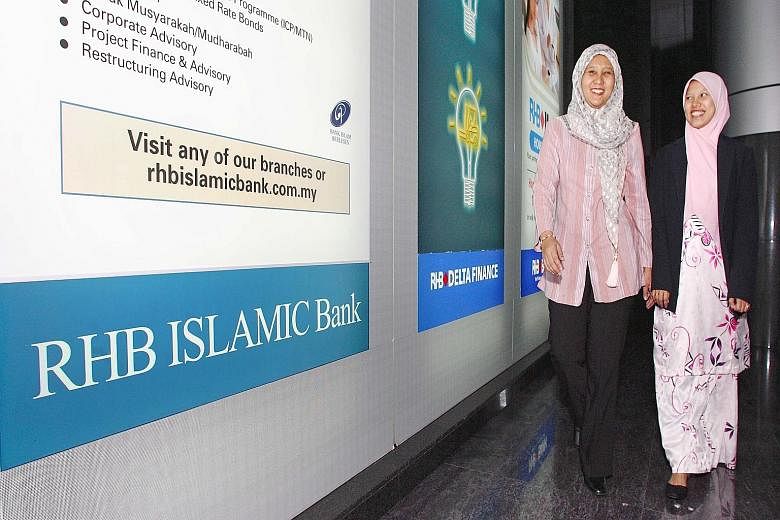DUBAI • Ms Samina Akram left her job at Merrill Lynch International Bank in 2009 to start her own consultancy in London specialising in syariah-compliant finance. Now, she is seeking to empower women in male-dominated Islamic banking.
What started as an informal ladies' lunch club with other women in the industry will this week become the first global Women in Islamic Finance Forum, a conference for more than 200 people at KPMG's Canary Wharf offices in London.
Syariah-compliant finance forbids interest payments and typically relies on deals in which the buyer and the seller share risk and profit.
Ms Akram, 36, who set up Samak Consultants, is seeking to support women in an industry where they face more obstacles than in conventional banking because of religious conservatism, restrictions on mixed-gender working environments and stereotypes about women in Islamic finance.
In the six-nation Gulf Cooperation Council (GCC), a shift may already be under way, as the region's banks aim to draw more female clients and recognise they need more female bankers to do so, according to PricewaterhouseCoopers (PwC).
Women's net worth in the GCC may grow as much as 15 per cent to about US$258 billion (S$354 billion) in the 10 years through 2023, according to Kuwait Financial Centre, an asset manager and investment bank.
"There is opportunity, absolutely," Mr Ashruff Jamall, the Dubai-based global head of the Islamic finance division at PwC, said last Tuesday.
"It's a question of priorities. Islamic banks are now beginning to focus on the women's segment. Developing female leadership also serves as a catalyst in attracting women as customers."
Having started at Merrill Lynch in an administrative role, Ms Akram rose to run the lender's Islamic finance wealth-management business. She left the bank in April 2009 as investment banks were shifting focus to outside Islamic finance consultants rather than in-house experts.
"I was an outsider with no direct industry experience and being a woman certainly did not help," Ms Akram said by e-mail this month. "My personal struggle in the industry made me realise the obstacles women face and what needs to be done to overcome them. This is where the Women in Islamic Finance idea came from."
Unemployment among women is five times higher than for men in the GCC, and women hold less than 1 per cent of top executive positions, among the lowest figures worldwide, according to a report by McKinsey Middle East last year.
The study cites social expectations and a lack of leadership programmes and networking opportunities as key reasons for the gap in the region, which includes Saudi Arabia, Qatar and the United Arab Emirates.
In more conservative countries, such as Saudi Arabia, there are religious and social constraints that, for example, forbid the mixing of genders in the work environment. While women in the kingdom make up the majority of university students, they account for just 21 per cent of the workforce, with most of them employed in education and healthcare, according to Mr Emad Mostaque, a London-based strategist at emerging-markets consultancy Ecstrat.
In other parts of the world with large Muslim populations, women have made more progress in Islamic banking. Two of Malaysia's 16 Islamic lenders are run by women and three of the 11-member central bank Syariah Advisory Board are female. BLOOMBERG

